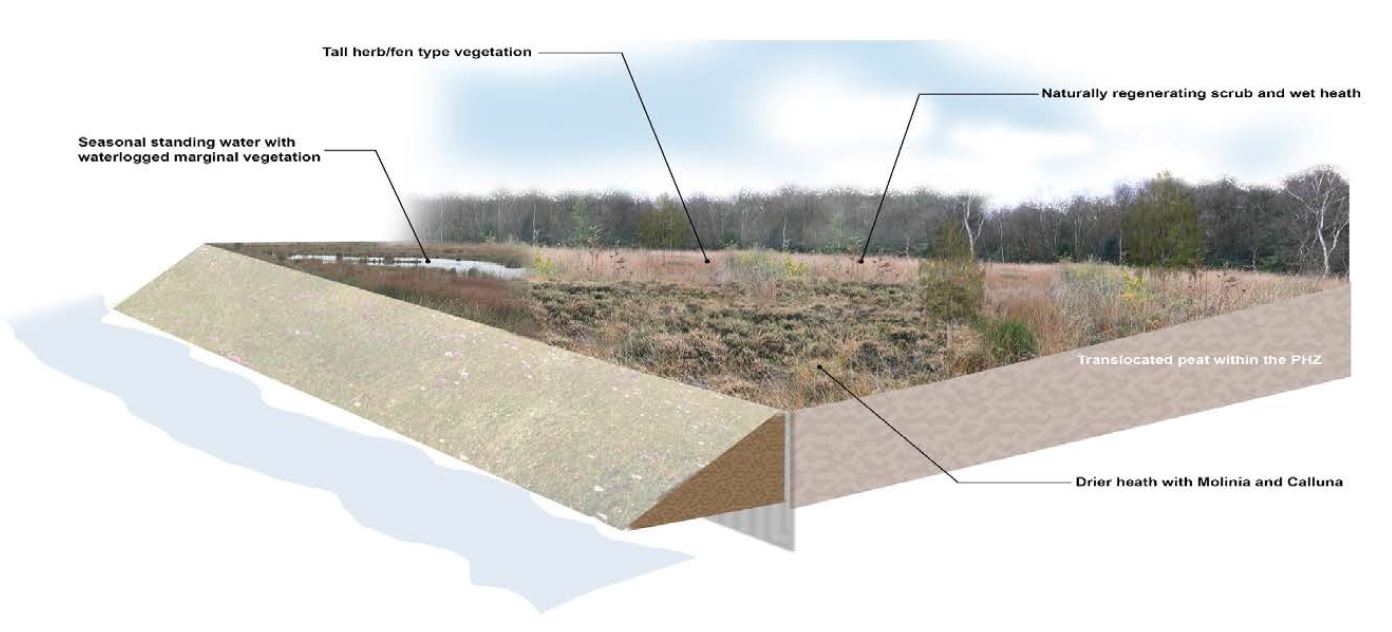Appeal Inspector agrees with Aspect Ecology that lowland raised bog creation is a highly valuable benefit of the proposed Warrington Motorway Service Area scheme
Aspect Ecology Senior Director, Alistair Baxter, recently presented evidence in regard to biodiversity matters at the public inquiry held into the proposed Motorway Service Area proposals at Warrington. As part of the proposals a biodiversity net gain (BNG) was proposed to be delivered through a range of habitat creation measures. In particular, the appeal proposals present an opportunity to create the rare and extremely valuable habitat, lowland raised bog, as encouraged by the Greater Manchester Wetlands Nature Improvement Area project (in the area of which the appeal site is located), over land currently in arable farming production, which is underlain by peat.
The creation of a lowland raised bog like habitat is technically challenging to achieve due to the complexities of the management of the hydrology of such systems. However, the project team carried extensive expertise in this area while exceptional local expertise is held by Warrington Borough Council and the Cheshire Wildlife Trust, both of which who manage Special Areas of Conservation designated for lowland raised bog located only around 1km from the appeal site.
The Inspector agreed with Alistair’s evidence that it was ecologically highly desirable to bring forward this valuable habitat and that due to the expertise on hand, there is a high degree in confidence in the successful delivery of the habitat creation. Alistair’s view is that the biodiversity’s Metric negative multipliers of ‘difficulty of creation’ were likely over cautious in this case and the reduced BNG outcome shown by the metric (8% gain) is not reflective of what the actual BNG outcome would be. Indeed, this will be substantially in excess of this figure, as evidenced by the fact that if a more readily created habitat is coded into the Metric, such as ‘other neutral grassland’, a BNG outcome of +29% is in fact achieved.
More details of the case can be found here and here.
Follow Aspect Ecology on LinkedIn for all our latest news LinkedIn Page


